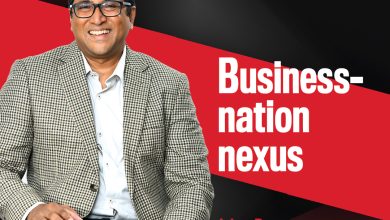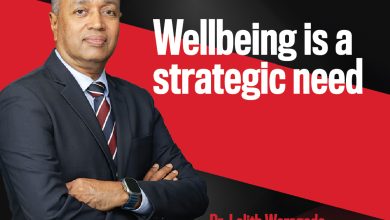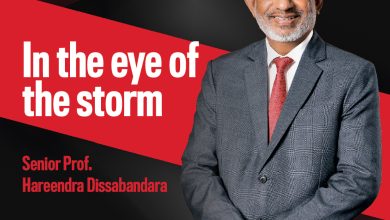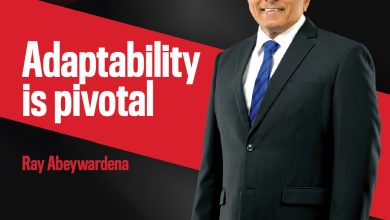CORPORATE SUSTAINABILITY
ESG is smart economics
Sriyan Cooray
“ESG must be hardwired into the core business model and not treated as a peripheral or compliance driven function”
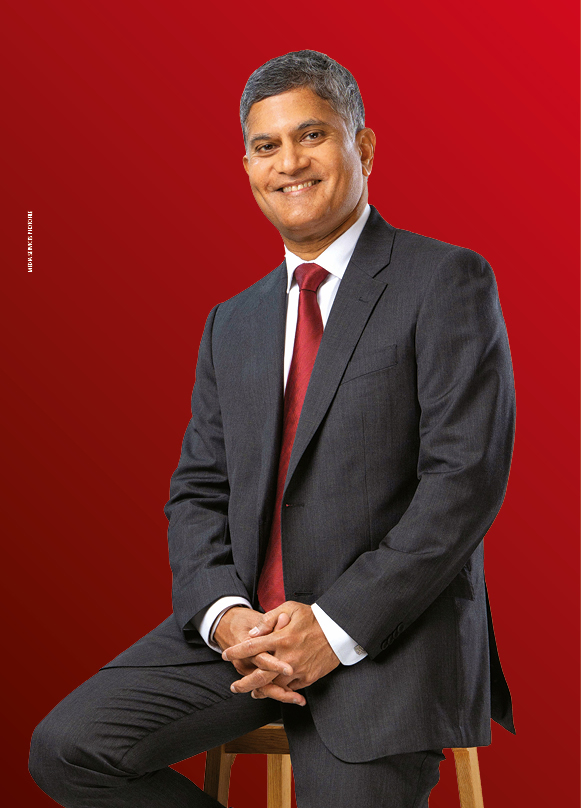
As environmental, social and corporate governance (ESG) expectations grow globally, businesses must fundamentally rethink their operations. Sriyan Cooray believes that integrating ESG is a strategic imperative and no longer a voluntary act of goodwill.
He asserts: “ESG must be hardwired into the core business model and not treated as a peripheral or compliance driven function.”
Cooray adds that ESG criteria should drive capital allocation, product development, talent strategy and supply chain management. And he continues: “In financial services, we’re aligning our lending policies to support lower emission sectors and promote green finance products.”
And he urges all sectors to appoint ESG leaders, integrate sustainability key performance indicators (KPIs) into executive scorecards, and assess environmental, social and corporate governance risks alongside financial metrics.
Cooray explains that “globally, more institutional investors now consider ESG factors in investment decisions – and they highlight the need for companies to prioritise ESG at board and strategy levels.”
SUSTAINABILITY PRIORITIES When asked about key sustainability initiatives, Cooray notes that while priorities may vary by industry, some areas are universally relevant. “Reducing carbon footprints, adopting circular economy practices and investing in renewable energy are essential on the environmental front,” he says.
On the social side, he explains the importance of fostering inclusive workplaces, ensuring fair labour practices across the value chain, and driving financial and digital inclusion.
Governance related efforts should focus on board level diversity, robust ethical frameworks and transparent stakeholder communication.
To this end, he references a recent McKinsey report that underscores the business case for sustainability: “Companies with the strongest ESG performance experienced faster growth and lower capital cost compared to their peers. These are compelling reasons to embrace sustainability not as an obligation but as a growth lever.”
GROWTH AND PURPOSE For Cooray, the outdated narrative of a trade-off between profit and purpose has no place in today’s business world.
“The most resilient and high performing businesses pursue shared values, and solve social or environmental challenges while generating economic returns,” he asserts.
And he offers practical examples: “Sustainable finance, green buildings and ethical sourcing offer new growth pathways while positively impacting the planet. For banks, this means financing businesses that adopt sustainable practices or channel funds into climate resilient infrastructure. For manufacturers, it could mean product redesign to minimise waste.”
TRACKING PROGRESS “ESG performance must be tracked by using both qualitative disclosures and quantitative KPIs. You can’t manage what you don’t measure!” Cooray exclaims.
He recommends tracking metrics such as carbon emissions, water usage, board diversity, employee wellbeing and community impact, and aligning them with frameworks such as the Global Reporting Initiative (GRI), Sustainability Accounting Standards Board (SASB), or the International Sustainability Standards Board (ISSB), and SLFRS S1 and S2 in Sri Lanka, for consistency and comparability.
“Transparency is reputational currency. For investors, regulators and consumers alike, credible ESG disclosures are now a basic expectation and not a differentiator,” he adds.
BRAND CATALYST Cooray emphasises that a strong ESG ethos is one of the most effective brand differentiators in today’s stakeholder economy: “For investors, it signals long-term risk resilience. And for talent – particularly Millennials and Gen Z – it signifies purpose, culture and ethical leadership.”
He adds that top tier talent is increasingly choosing employers based on their ESG values as much as salaries or job titles. On the investor front, the numbers are equally compelling, Cooray notes: “Environmental, social and corporate governance assets under management (AUM) are projected to exceed US$ 53 trillion by 2025, representing more than a third of total global AUM, according to Bloomberg Intelligence.”
The conclusion is evident: a commitment to ESG is smart economics rather than simply good ethics. And for forward-thinking organisations, it’s the foundation for sustainable success.

